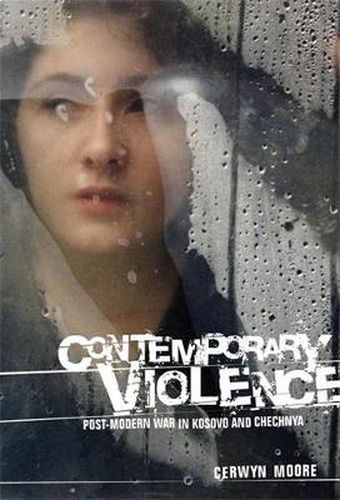Readings Newsletter
Become a Readings Member to make your shopping experience even easier.
Sign in or sign up for free!
You’re not far away from qualifying for FREE standard shipping within Australia
You’ve qualified for FREE standard shipping within Australia
The cart is loading…






This fascinating book draws on several years of field research, as well as hermeneutic global politics and analysis of empirical source material, in order to shed light on contemporary violence. Drawing on interpretive approaches to International Relations, the author argues that founding events and multiple contexts informed the stories used by different members of the Kosovan and Chechen movements involved, respectively, in conflicts with the federal authorities in Serbia and Russia. The book examines why elements within the Kosovo Liberation Army and the armed forces of the Chechen Republic of Ichkeria employed regional and local strategies of war in the Balkans and the North Caucasus in the late 1990s. Using post-positivist analysis, the author unravels the complex relationship between regional politics and trans-local accounts of identity, social networks and narratives, globalisation and visual aspects of contemporary security. These themes, together with criminality and emotionality, draw attention to the complex dynamics within the armed resistance movements in Kosovo and the North Caucasus, and the road to war in these regions at the end of the Twentieth Century. Accessible and readable, this book represents a major addition to the field of IR theory and to the study of war. It will be of interest to academics, researchers, students, area studies experts and policy-makers seeking to understand the formation of the armed resistance movements in Kosovo and Chechnya. The book will also appeal to students and scholars of Political Science and Cultural Studies, as well as those reading Anthropology, History and Sociology.
$9.00 standard shipping within Australia
FREE standard shipping within Australia for orders over $100.00
Express & International shipping calculated at checkout
This fascinating book draws on several years of field research, as well as hermeneutic global politics and analysis of empirical source material, in order to shed light on contemporary violence. Drawing on interpretive approaches to International Relations, the author argues that founding events and multiple contexts informed the stories used by different members of the Kosovan and Chechen movements involved, respectively, in conflicts with the federal authorities in Serbia and Russia. The book examines why elements within the Kosovo Liberation Army and the armed forces of the Chechen Republic of Ichkeria employed regional and local strategies of war in the Balkans and the North Caucasus in the late 1990s. Using post-positivist analysis, the author unravels the complex relationship between regional politics and trans-local accounts of identity, social networks and narratives, globalisation and visual aspects of contemporary security. These themes, together with criminality and emotionality, draw attention to the complex dynamics within the armed resistance movements in Kosovo and the North Caucasus, and the road to war in these regions at the end of the Twentieth Century. Accessible and readable, this book represents a major addition to the field of IR theory and to the study of war. It will be of interest to academics, researchers, students, area studies experts and policy-makers seeking to understand the formation of the armed resistance movements in Kosovo and Chechnya. The book will also appeal to students and scholars of Political Science and Cultural Studies, as well as those reading Anthropology, History and Sociology.